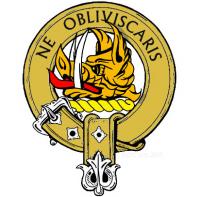
Clan Campbell
Clan Campbell People
 Sir Henry Campbell-Bannerman (1836-1908)
Sir Henry Campbell-Bannerman (1836-1908)
The Prime Minister of Great Britain from 1905-1908 was born in Glasgow with a future lord provist as a father. To inherit the fortune of a deceased uncle he hyphenated his father's Campbell with his mother's name Bannerman.
He studied in Glasgow and Cambridge before becoming the liberal MP for Stirling for the rest of his life. He held a range of ministerial positions during his career and recieved a knighthood in 1895. He was described as a strenuous fighter and supporter of the suffragette movement and self-government for the Boers.
Whilst Prime Minister his cabinet included Winston Churchill, Lloyd George and Henry Herbert Asquith, but with his health deteriorating he had to resign from politics and was dead within a fortnight.
Sir Colin Campbell, Lord Clyde (1792-1863)
There is a story that Colin MacIver took on his mother's maiden name after the Duke of York told him that Campbell was a good name for a soldier. As Colin Campbell, the Glasgow carpenter's son rose through the ranks of the British Army to be eventually created Field Marshall in 1862.
He fought with distinction in China and the West Indies, India and the Crimea where he won the Battle of Alma leading the Highland Brigade and onwards with 'the Thin Red Line' at Balaclava, opposing the Russian Cavalry. His body lies in Westminster Abbey and he is regarded as a military giant of Britains Empire in the middle 19th Century.
Sir Malcolm Brown Campbell (1848-1935)
The Creator of the famous Malcolm Campbell grocery chain has a rags to riches story. From his birth in Kilwinning, Ayrshire and running errands for a greengrocer in Glasgow, he developed fruit and vegetable sales by trying to bring the World's products to the high street. He was the man who made Bananas available in Scotland. An important part of his success was his targetting of railway stations as idea sites for his kiosks. For his achievements he was nkighted in 1922.
Angus Campbell (1903-82)
Born in the town of Ness on the Isle of Lewis and known as Am Puilean, Angus Campbell's poetry and writing drew on his experiencees in youth and as a prisoner of war in Poland during the Second World War. In 1972 a collection of his poetry in Gaelic was published, entitled 'Chaff & Wheat' The following year his autobiography 'Touching Many Headlands' was published.









